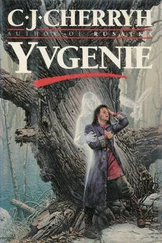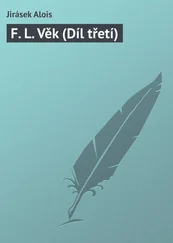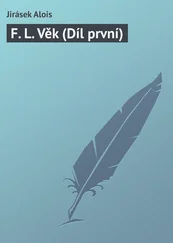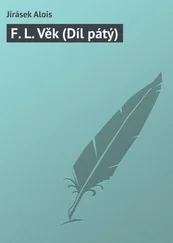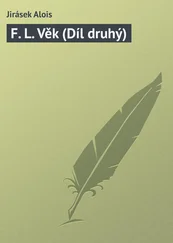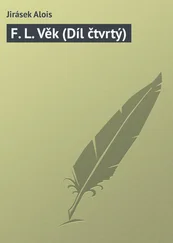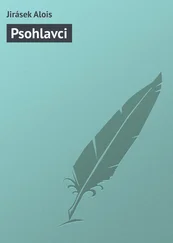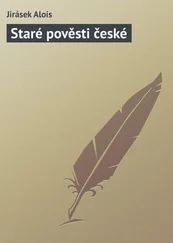C. Cherryh - Shon'jir
Здесь есть возможность читать онлайн «C. Cherryh - Shon'jir» весь текст электронной книги совершенно бесплатно (целиком полную версию без сокращений). В некоторых случаях можно слушать аудио, скачать через торрент в формате fb2 и присутствует краткое содержание. Жанр: romance_sf, на английском языке. Описание произведения, (предисловие) а так же отзывы посетителей доступны на портале библиотеки ЛибКат.
- Название:Shon'jir
- Автор:
- Жанр:
- Год:неизвестен
- ISBN:нет данных
- Рейтинг книги:3 / 5. Голосов: 1
-
Избранное:Добавить в избранное
- Отзывы:
-
Ваша оценка:
- 60
- 1
- 2
- 3
- 4
- 5
Shon'jir: краткое содержание, описание и аннотация
Предлагаем к чтению аннотацию, описание, краткое содержание или предисловие (зависит от того, что написал сам автор книги «Shon'jir»). Если вы не нашли необходимую информацию о книге — напишите в комментариях, мы постараемся отыскать её.
Shon'jir — читать онлайн бесплатно полную книгу (весь текст) целиком
Ниже представлен текст книги, разбитый по страницам. Система сохранения места последней прочитанной страницы, позволяет с удобством читать онлайн бесплатно книгу «Shon'jir», без необходимости каждый раз заново искать на чём Вы остановились. Поставьте закладку, и сможете в любой момент перейти на страницу, на которой закончили чтение.
Интервал:
Закладка:
No ships.
No reaction.
The sixth day there were the first clear images of the world, and Melein came to controls to look at them. Niun set his hand upon hers, silent offering.
It was a red world and lifeless.
Old. Very, very old.
Duncan cut the image off the screens. There was agony in his face when he looked at them both, as it he thought himself to blame. But Niun drew a deep breath and let it go, surrendering to what he had known all his life.
That they were, after all, the last-born.
Somewhere in the ship the dusei moaned, gathering in the grief that was sent them.
"The voyage of the People," said Melein, "has been very, very long. IlSwe are the last, still we will go home. Take us there, Duncan.”
"Yes," Duncan said simply, and bowed his head and turned to the boards so that he did not have to look on their faces. Niun found it difficult to breathe, a great tightness about his heart, as when he had seen the People die on Kesrith; but it was an old grief, and already mourned. He stood still while Melein went her way back to her hall.
Then he went apart, unto himself, and sat down with his dus, and wept, as the Kel could not weep.
"Why should we be sorrowful?" asked Melein, when they had met again that evening, for their first common-meal in many days, and their last, before landing. "We always knew that we were the last. For a time we believed otherwise, and we were happier, but it is only the same truth that has always been. We should still be glad. We have come home. We have seen what was our beginning, and that is a fit ending.”
This was something the human could not understand. He simply shook his head as he would do in pain, and his dus nosed at him, disconsolate.
But Niun inclined himself wholly to Melein's thoughts: they were true. There were far worse things than what lay before them: there was Kesrith; there were humans, and regul.
"Do not grieve for us," Niun said to Duncan, and touched his sleeve. "We are where we wish to be.”
"I will get back to controls," Duncan said, and flung himself to his feet, veiled himself and left their company without asking permission or looking back. His dus trailed after him, radiating distress.
"He can do nothing there," said Melein with a shrug. "But it comforts him.”
"Our Duncan," said Niun, "will not let go. He is obsessed with blame.”
"For us?”
Niun shrugged, pressed his lips together, looked aside.
She put out her hand and touched his face, recalled his attention, regarding him sadly. "I have known that it was possible, that it might have been too long. Niun, there have been above eighty Darks, and in each more than one generation has passed; and there have been above eighty Betweens, and the most of them have lasted above a thousand years.”
He attempted a deprecating laugh, a shake of his head: it did not come out as a laugh. "I can reckon that in distance but not in years. Twenty years is long for a kel'en. I cannot reckon a thousand.”
She bent and pressed her lips to his brow. "Niun, the accounting is no matter. It is beyond my reckoning too.”
That night, and the night after, Niun slept sitting, his head against her chair. Melein did not ask it. He simply did not want to leave her. And when Duncan came from his lonely watch for what few hours of true sleep he sought, he curled up against his dus in the corner here, and not in kel-hall. It was not a time that any of them wanted to be alone. The loneliness of Kutath itself was overwhelming.
On the eighth day Kutath swung beneath them, filling all the screen in the she'pan's hall angry, arid, scarred with its age.
And Duncan came to the she'pan's presence, burst in like a gust of wind and swept off mez and zaidhe to show his face: it was aglow.
"Life!" he said. "The scan shows it. She'pan, Niun your World is not dead.”
For an instant neither of them moved.
And of a sudden Melein struck her hands together and thanked the several gods; and only then Niun dared to draw breath and hope.
Behind Duncan, Melein went to controls, and Niun followed after, with the dusei padding behind them and blowing great puffs of excitement. Melein settled on the arm of the cushion and Niun leaned beside her, the while Duncan tried to make clear to them what his search had found, showing them the screens and the figures and all the chattering flow of data that meant life.
Life of machines; and very, very scant, the evidence of growing things.
"It looks like Kesrith from space," said Duncan softly, and sent a chill over Niun's flesh, for often enough the old she'pan had called Kesrith the forge that would prepare the People ... for all that would lie before them. "The dusei," said Duncan, "should fare well enough there.”
"One moon," Niun read the screen, remembering with homesickness the two that had coursed the .skies of Kesrith; remembering his hills, and the familiar places that he had hunted before humans came.
This world of their ancestors would hold its own secrets, its own graces and beauties, and its own dangers.
And humans soon enough.
"Duncan," said Melein, "take us down.”
Chapter Seventeen
KDTATH.
Duncan inhaled the air that blew into the hatch, the first breath off the surface of the world, cold and thin, faintly scented. He looked beyond the hatch at the red and amber sands, at the ridge of distant, rounded mountains, at a sun sullen-hued and distorted in its sky.
And he did not go down. This was for the mri, to go first onto their native soil. He stood in the ship and watched them descend the ramp, Melein first, and Niun after her children returned to their ancient mother. They looked about them, their eyes surely seeing things in a different way than his might, their senses finding something familiar in the touch of Kutath's gravity, the flavor of its air something that must call to their blood and senses and say this is home.
Sad for them if it did not, if the People had indeed voyaged too long, and lost everything for which they had come. He did not think they had; he had seen the look in Niun's eyes when they beheld the world beyond the hatch.
He felt his own throat tight, his muscles trembling with the terrible chill of the world, and with anxiety. If he felt anything clearly, it was a sense of loss and he did not know why. He had succeeded for them, had brought them home, and down safely, and yet there was a sadness on him.
It was not all he had done, that service for the People.
Across the system a beacon pulsed, a marker on the path incoming ships would use; and on Kutath, the ship itself now served as a beacon. Silent the pulse was, but it was going now… would go on so long as power remained in the ship and that would be beyond their brief lifespans.
Friendship, friendship, the ship cried at the heavens, and did human ships care to inquire of that signal or the other, there was more.
He had not confessed this to Niun or Melein. He did not think they would approve any gesture toward tsi'mri, and therefore he did not ask their approval.
He saw the dusei go, whuffing and sniffing the air as they edged their turn-toed way down the ramp rolling with fat from their long, well-fed inactivity on the ship, sleek and shining under the wan sun. They reached the sand and rolled in delight, shaking clouds of red powder from their velvet hides when they rose up again. The greater one towered up on his hind legs, came down, playing, puffing a cloud of dust at the mri, and Niun scolded him off.
The beasts went their own way then, circling out, exploring their new world. They would allow no danger to come to the mri without raising alarm about it, and their present manner was one of great ease. Unharmed by the wind of the ship, a clump of blue-green pipes grew nearby. The dusei destroyed it, munching the plants with evident relish. Their digestion could handle anything, even most poisons; there was no concern for that.
Читать дальшеИнтервал:
Закладка:
Похожие книги на «Shon'jir»
Представляем Вашему вниманию похожие книги на «Shon'jir» списком для выбора. Мы отобрали схожую по названию и смыслу литературу в надежде предоставить читателям больше вариантов отыскать новые, интересные, ещё непрочитанные произведения.
Обсуждение, отзывы о книге «Shon'jir» и просто собственные мнения читателей. Оставьте ваши комментарии, напишите, что Вы думаете о произведении, его смысле или главных героях. Укажите что конкретно понравилось, а что нет, и почему Вы так считаете.

